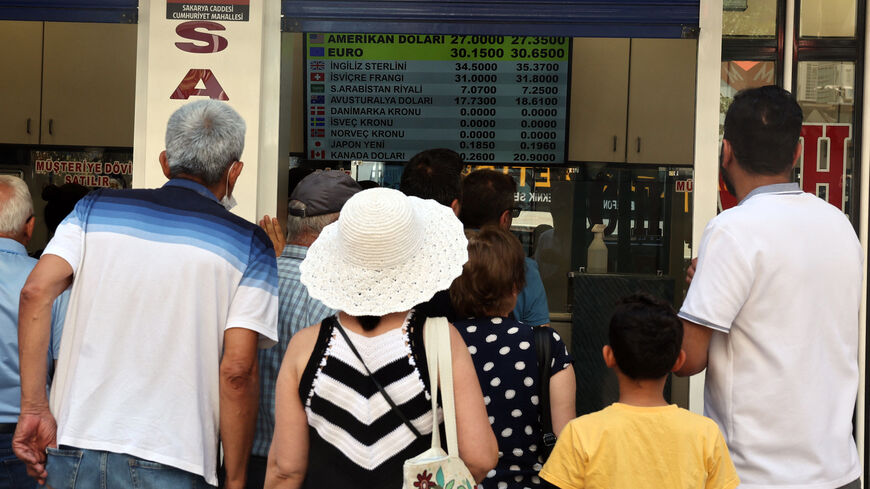Foreign investors continued their buying spree of Turkish stocks in their longest streak in a decade, showing increased confidence in a country that is departing from its unorthodox economic policy of keeping interest rates low despite high inflation.
Overseas investors bought $179 million in local equities last week, an eighth straight week of inflows, according to the latest data from the Turkish Central Bank. Bloomberg reported Thursday that it represents the longest run of net foreign direct investment since 2013. During that period, purchases total a net $1.8 billion, while the benchmark Borsa Istanbul 100 Index has risen 61% since the May elections.
That investors are more optimistic about Turkey is welcome news for a country grappling with an acute cost-of-living crisis and sky-high inflation as well as a weakened lira. On Thursday, annual inflation hit 47.83% in July, a rise of nearly 55% compared to last year. Before 2023, Turkey had seen five years of net foreign investor withdrawals from Turkish stocks. At the start of June, foreign ownership of Turkish stocks was at a record low of 27%, according to Takasbank data. It has since risen to nearly 30% this week.
After President Recep Tayyip Erdogan was narrowly reelected in May, he appointed senior officials that subscribed to the conventional economic wisdom that higher interest tames inflation. It marks a dramatic U-turn from the president’s former economic policy, which kept rates low despite soaring prices. Two new appointees — Finance and Treasury Minister Mehmet Simsek and Central Bank Governor Gaye Erkan — support a return to conventional economic policy.
Erkan raised interest rates in successive hikes in June and July, from 8.5% to 17.5%.
In July Erdogan embarked on his first tour of the Gulf since being reelected in an effort to attract foreign investment to Turkey. Memoranda of understanding worth $50.7 billion between Turkey and the United Arab Emirates were announced during that visit.
So far, these strategies seem to be paying off. Simsek tweeted on July 29 that there had been “a surge” in investor interest in Turkish assets.
“In addition to FDI inflows from GCC countries, expected to surge over the next three years, we have seen an increase in equity and debt deals,” he added.
Simsek highlighted a few publicly announced transactions, including this week's offering of $250 million in Yapi Kredi shares to institutional investors, the country’s largest equity offering in the last three years that was five times the targeted investor demand. Close to 40 US and European investors participated, the minister reported.
He also highlighted a partnership between Istanbul-based Ronesans Enerji and French firm TotalEnergies last week.
“All these transactions show confidence in Turkiye and our efforts in implementing sound macroeconomic policies,” he added. “Long-term investments into Turkiye will support our policies, help stabilise Lira, and result in milder impact of the recently initiated fiscal and monetary tightening on growth.”
On July 14, the International Investors Association of Turkey said that its members are planning $7.1 billion worth of direct investments in Turkey in the next six months.








